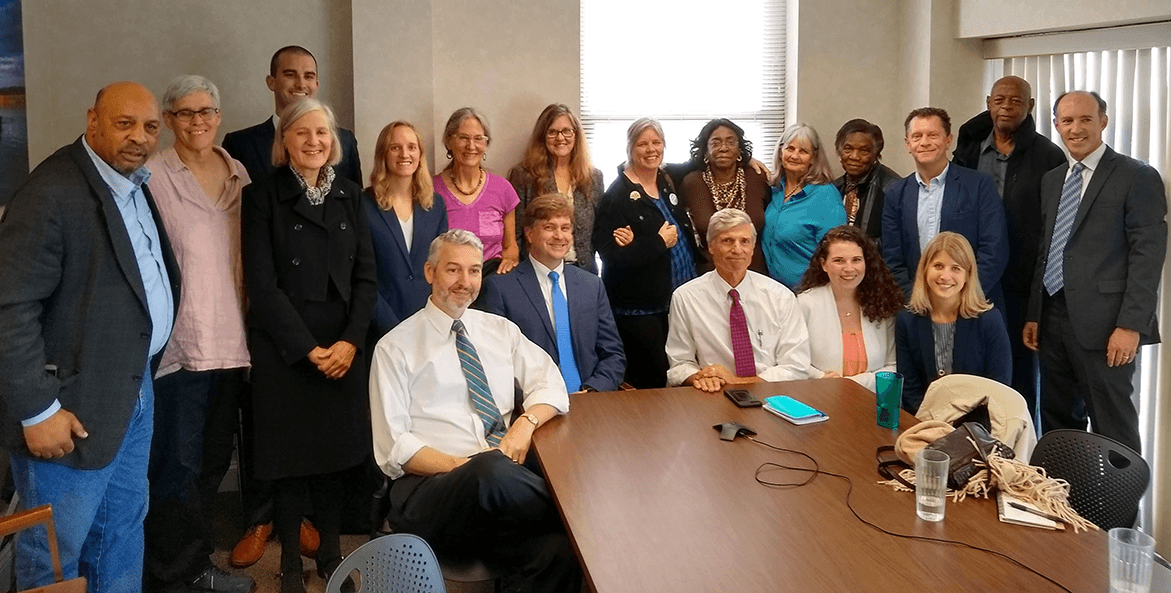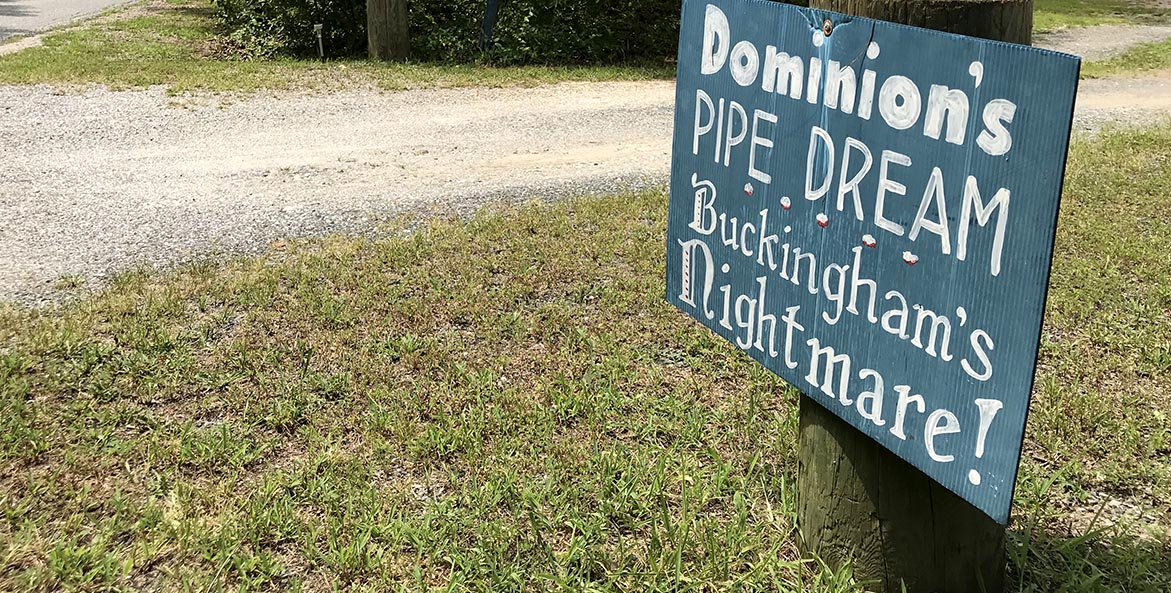Virginia has been grappling in recent years with how to meaningfully apply environmental justice—the effort to ensure that low-income or BIPOC communities aren’t disproportionately harmed by pollution and other environmental threats.
A major court win last week for the people of Union Hill could help move the needle in the right direction.
“I was ecstatic. I had to sit down. My legs started shaking, I was so excited,” said Richard Walker of the moment he heard about the outcome. “I immediately called my cousin. All she could do was scream and cry.”
For years, Walker has fought a pipeline compressor station slated to be built less than a mile from dozens of households in Union Hill, a largely African-American community in rural Buckingham County. His great-great grandfather was one of the freed slaves who settled the area in the 1880s. Growing up, Walker treasured the clean air and healthy living during summers spent on the family farm.
A new pollution-spewing facility would shatter Union Hill’s tranquility and threaten the health of the many residents next door already suffering from preexisting health conditions—including Walker’s cousin.
That’s why CBF, together with Southern Environmental Law Center and Friends of Buckingham, filed a lawsuit challenging the compressor station’s air permit and raising issues of environmental justice. As a result, last week the Fourth Circuit Court of Appeals threw out the permit, finding that Virginia did not fulfill its legal duty to determine whether building the facility in Union Hill would unfairly threaten the health of nearby residents.

CBF staff with members of the Union Hill community, Southern Environmental Law Center, and Friends of Buckingham.
Kenny Fletcher
That meant a lot to Walker and his family.
“Now they don’t have to worry about breathing in fumes. They don’t have to worry about hearing the rumble of the compressor station 24/7 and massive construction trucks coming through the roads,” Walker said. “They don’t have to worry about continuous destruction of the wetlands and woodlands.”
The court decision came at a key time for environmental justice in Virginia. There’s a long history of undesirable facilities (think landfills, trash incinerators, or coal plants) being built where people have the least power—all too often communities that are low-income or largely people of color.
In recent years, Virginia has taken initial steps to turn things around. In 2017, then-Governor McAuliffe established a Governor’s Advisory Council on Environmental Justice, which has continued under Governor Northam. CBF Virginia Voices Coordinator Jay Ford is a member of the council.
In the coming weeks, Virginia legislators will consider several proposals in front of the General Assembly to make the council permanent and others that would help ensure the state addresses environmental justice. Governor Northam’s proposed budget would also provide $2.7 million for environmental justice and community outreach at the Department of Environmental Quality (DEQ).
Now that a federal appeals court has found that Virginia didn’t properly take environmental justice into consideration, there’s added pressure for things to change.
“This is about more than going through the motions or checking off a box,” said CBF Vice President for Litigation Jon Mueller, who, with counsel from SELC, argued the Union Hill case in court. “It’s about truly determining whether at-risk populations of people living near a facility are going to be harmed more than other communities.”
What’s next for Union Hill? Pipeline developers have said they still hope to secure a permit for the Union Hill site. If so, DEQ and the Virginia Air Pollution Control Board will need to go through the permitting process again. That will take time.
Meanwhile, Walker is supporting efforts to bring jobs and opportunities to Union Hill without relying on expanding fossil fuels and greenhouse gas emissions. Through his nonprofit Bridging the Gap in Virginia, he’s advocating for broadband internet access and employment opportunities in Union Hill, including the establishment of a green jobs workforce center in Buckingham County.
“Instead of building pipelines we can teach people to install solar panels,” Walker said. “That’s the future of Union Hill.”

Issues in this Post
Air Pollution Atlantic Coast Natural Gas Pipeline Litigation Natural Gas CBF in Virginia



